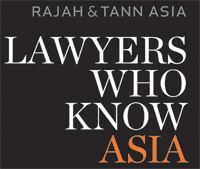R&T Asia (Thailand) assesses how recent amendments to Thailand’s Civil Procedure Code have impacted litigation practice in the jurisdiction
Thailand has recently enabled a party to a dispute to request in-court civil mediation even before a complaint is filed with the court, with a view to saving time and resources which would otherwise be used in civil proceedings. This new form of civil mediation before litigation became effective on
7 November 2020 and was introduced by way of an amendment to the Civil Procedure Code, which is the law setting out the general procedure for the conduct of civil proceedings in Thailand.
Civil mediation procedure
Prior to the amendment which took effect on 7 November 2020, the existing legal provision under the Civil Procedure Code only allowed a party to civil proceedings to request an in-court civil mediation session during the court proceedings. However, a party may now submit a motion with the court having territorial jurisdiction over such dispute to appoint a mediator to settle the dispute before a complaint is filed with the court. If the court accepts the motion, the court will seek consent from the opposing party. If the opposing party agrees to mediate, the court will subpoena the parties to attend a mediation session and appoint a mediator to conduct such session. The parties are not required to be accompanied by their lawyers to the mediation session.
Where the parties are able to reach a mutual agreement/compromise, the mediator will refer the matter to the court for determination. If the court finds that the agreement/compromise conforms with the parties’ intention and the principle of good faith, and the agreement is fair and not contrary to the law, the court will allow the parties to sign the agreement/compromise. The parties may also request the court to render a judgment according to the settlement agreement.
Where the parties are able to reach a mutual agreement/compromise, the mediator will refer the matter to the court for determination.
There is no right of appeal against a judgment issued according to a settlement agreement, unless there is an allegation of fraud against any party, or an allegation that the judgment infringes any legal provision involving public order or is not in accordance with the agreement or compromise between the parties.
The initiation and operation of pre-litigation mediation under the Act is not subject to court fees. Therefore, the parties are not required to pay court fees upon filing the petition requesting a pre-litigation mediation session.
It is also important to note that, if the prescription period (i) expires after the petition requesting the mediation is filed and the parties cannot reach a mutual agreement or compromise during the mediation, or (ii) will expire within 60 days from the date on which the mediation ceased without agreement from the parties, the prescription period will be extended for a further 60 days from the date on which the mediation ceased.
The benefit of pursuing civil mediation prior to litigation
Time involved in civil proceedings
One obvious benefit to pursuing civil mediation before commencing litigation is the length of time a commercial claim usually takes to reach a decision of the court of first instance. While the length of the entire proceedings in the court of first instance is difficult to predict and would also depend on the complexity of the case and backlog of cases at that particular court, based on our experience, it usually takes approximately 18 months for a judgment to be rendered by the court of first instance from the date of commencement of legal proceedings.
Appeals are made in writing only, without oral hearings, and it would usually take one-two years to complete each stage of appeal.
Further appeals against a judgment of the court of first instance may then be made, with such appeals generally required to be filed within one month from the date on which the judgment of the court of first instance is read. Statistics published by the Office of the Judiciary suggests that approximately 5-6% of first-instance judgments on civil claims are then appealed (eg in 2019 approximately 140,000 judgments on civil claims were rendered by the court of first instance, while approximately 8,000 appeals against judgments on civil claims were accepted for consideration by the Court of Appeal and approximately 940 appeals against judgments on civil claims were accepted for consideration by the Supreme Court). Appeals are made in writing only, without oral hearings, and it would usually take one-two years to complete each stage of appeal.
Enforcement of judgment
Where the parties successfully reach a settlement following the mediation process, this should reduce the risk of the party entitled to receive payment under the settlement agreement having to commence enforcement proceedings. The enforcement of court judgments in Thailand can be a complicated and lengthy process, and can only commence where (i) a court order for a stay of execution is not granted to the party who lost the case in the Court of First Instance or the Court of Appeal; or (ii) the case has become final as there was no further appeal. In practice, the court will issue a decree for the performance of the relevant obligations by the judgment debtor within a specified time, which shall commence from the date on which the decree is acknowledged by the judgment debtor.
If the judgment debtor fails to comply with the decree, the judgment creditor will have to file a motion to the court for a writ of execution. The execution of a court judgment is usually by means of seizure and sale of the judgment debtor’s assets, attachment of the judgment debtor’s rights of claim against third parties, arrest and detention of the judgment debtor or other means. In practice, the party seeking to enforce the judgment is required to assist in identifying and locating the asset(s) against which judgment is to be enforced. When an asset has been identified, the process of enforcement would entail the sale of assets by the execution officer by means of public auction.
Fees
The Thai courts have the discretion to allocate statutory costs between the successful party and the unsuccessful party. In general, the courts will order the unsuccessful party to pay the statutory costs of the successful party. However, the amount awarded by the courts is nominal and limited by the rates prescribed in the Schedule attached to the Civil Procedure Code.
For cases with monetary claims, the amount of lawyer fees that the court of first instance may award is limited to 5% of the total value of the monetary claims and the amount of expenses in relation to the court proceedings that the court of first instance may award is limited to 1% of the total value of the monetary claims. For the Court of Appeal and the Supreme Court stages, the amount of lawyer fees that may be awarded is limited to 3% of the total value of the monetary claims.
Conclusion
In conclusion, civil mediation before litigation potentially offers an alternative to the costly and time intensive pursuit of commercial claims using Thai civil proceedings, and it is worth exploring this option.
Deputy managing partner
E: sui.lin.teoh@rajahtann.com
Tel: +66 2656 1991

Krida Phoonwathu (pictured)
Partner
E: krida.phoonwathu@rajahtann.com
Tel: +66 2656 1991










